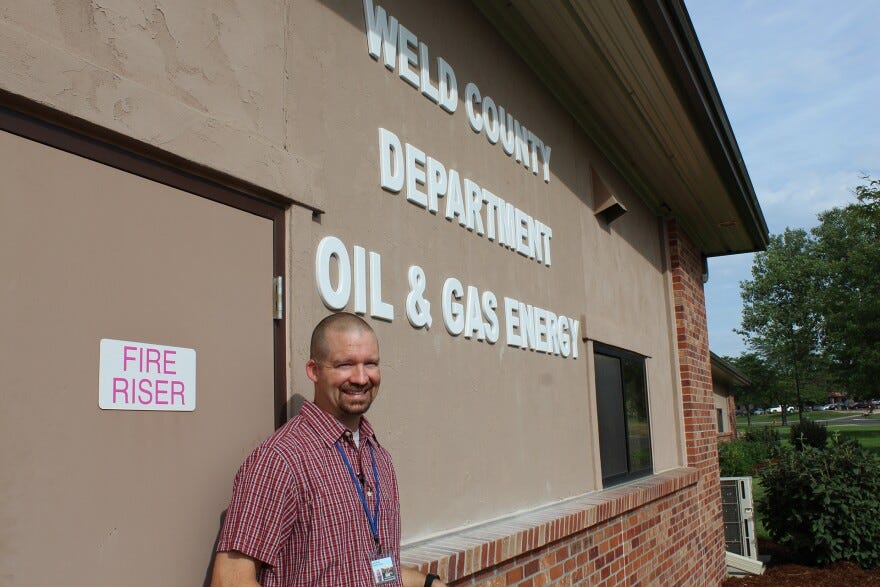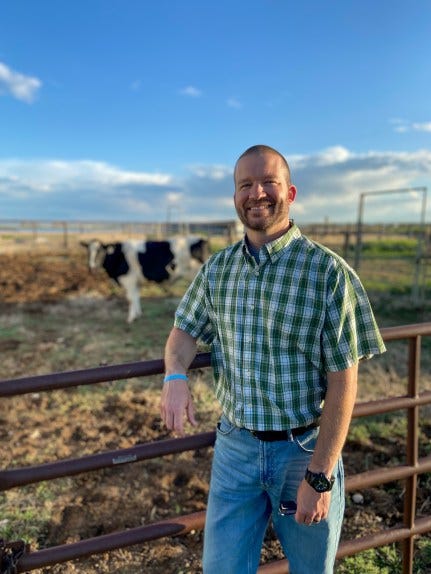Jason Maxey, the director of the Weld County Oil and Gas Energy Department, joined TownSquare Media SuperTalk 1270’s Talk of the Town with Steve Bakken and Jason Spiess for a special interview on some of the critical energy issues in Weld County.
One of the main topics of conversation was the integration of Agriculture, Energy and Carbon Management under on regulatory body. Some believe this would give “industry incredible influence over the multitude of problems they created while receiving billions in tax dollars to solve their problems after network golfing and meeting their circle of friends at the country club”.
Others say this new regulatory body will “streamline” and "make the process more transparent”.
History has proven one of the two comments to be correct more often than the other. Which one do you believe will happen?
Nevertheless, here is the law in Colorado:
SB23-285, signed into law by Democratic Gov. Jared Polis in May, included the name change, effective July 1. The bill was sponsored by Sens. Kevin Priola, D-Boulder, and Chris Hansen, D-Denver, and Reps. Karen McCormick, D-Longmont, and Ruby Dickson, D-Greenwood Village.
The first two years of commission costs will include hiring technical experts, including three engineers. Lawmakers also appropriated funds for conducting four studies, including a $175,000 geothermal study. Costs also covered will be rule making, community outreach and engagement ($50,000 annually), agency coordination, creation of databases and forms, rebranding the commission ($25,000) and updating the commission’s website ($100,000). Stakeholder engagement and rule making are expected to take approximately two years, according to the fiscal note.
Weld County, situated in northeastern Colorado, is a region rich in history and characterized by its diverse landscape, agriculture, and economic activities. One of its most significant chapters involves the exploration and development of oil and gas resources, which have played a pivotal role in shaping the county's growth and identity.
Weld County's history dates back to the mid-19th century when European settlers and pioneers arrived in the area. The region's fertile soil made it ideal for agriculture, leading to the establishment of farming communities and ranches. Over time, these communities evolved into towns and cities, contributing to Weld County's vibrant cultural tapestry.
The late 19th century marked the beginning of oil and gas exploration in Weld County. The discovery of oil in the Denver Basin set off a wave of interest in the region's energy potential. The early 1900s saw the establishment of drilling operations and the growth of the oil and gas industry in Weld County. These resources provided significant economic opportunities, leading to an influx of investment and development.
Weld County experienced several boom and bust cycles in its oil and gas development history. Periods of rapid growth and prosperity were often followed by economic downturns driven by fluctuating oil prices, technological advancements, and regulatory changes. These cycles shaped the local economy and impacted communities, underscoring the volatility inherent in the energy sector.
Advancements in drilling technology and extraction techniques revolutionized the oil and gas industry in Weld County. The implementation of hydraulic fracturing (fracking) techniques enabled the extraction of previously inaccessible reserves, propelling the region into the national spotlight as a significant energy producer.
Oil and gas development in Weld County has brought substantial economic benefits. Job creation, tax revenue, and increased local business activity have contributed to the county's economic vitality.
However, the industry's growth has also presented challenges related to environmental concerns, land use conflicts, and community health and safety considerations. Balancing economic prosperity with environmental stewardship has been a central theme in the region's ongoing dialogue.
As the energy landscape evolves, Weld County's oil and gas industry continues to adapt. The county remains a vital energy hub, with ongoing efforts to address environmental impacts, enhance safety measures, and diversify the local economy.
Renewable energy initiatives and the exploration of cleaner energy alternatives signal a shift towards a more sustainable energy future for the county.
Maxey is also running for county commissioner of District 1 next year. Commissioner Mike Freeman, the current District 1 commissioner, is serving his third and final term through the end of 2024.
Maxey has served as the director of the Oil and Gas Energy Department since county commissioners voted to create the department in 2019.
According to Maxey, he’ll continue to value the importance of the agriculture industry, advocate for private property rights and work to support a robust and diverse energy industry.
Maxey, a Weld County resident of more than 33 years, has more than 15 years of experience in the energy industry, including consulting, project management, key account management, governmental affairs and oil and gas regulatory work.
Maxey’s campaign website is available at www.maxeyforweld.com. His campaign can also be found on Facebook, “Maxey for Commissioner – District 1.”


















Share this post